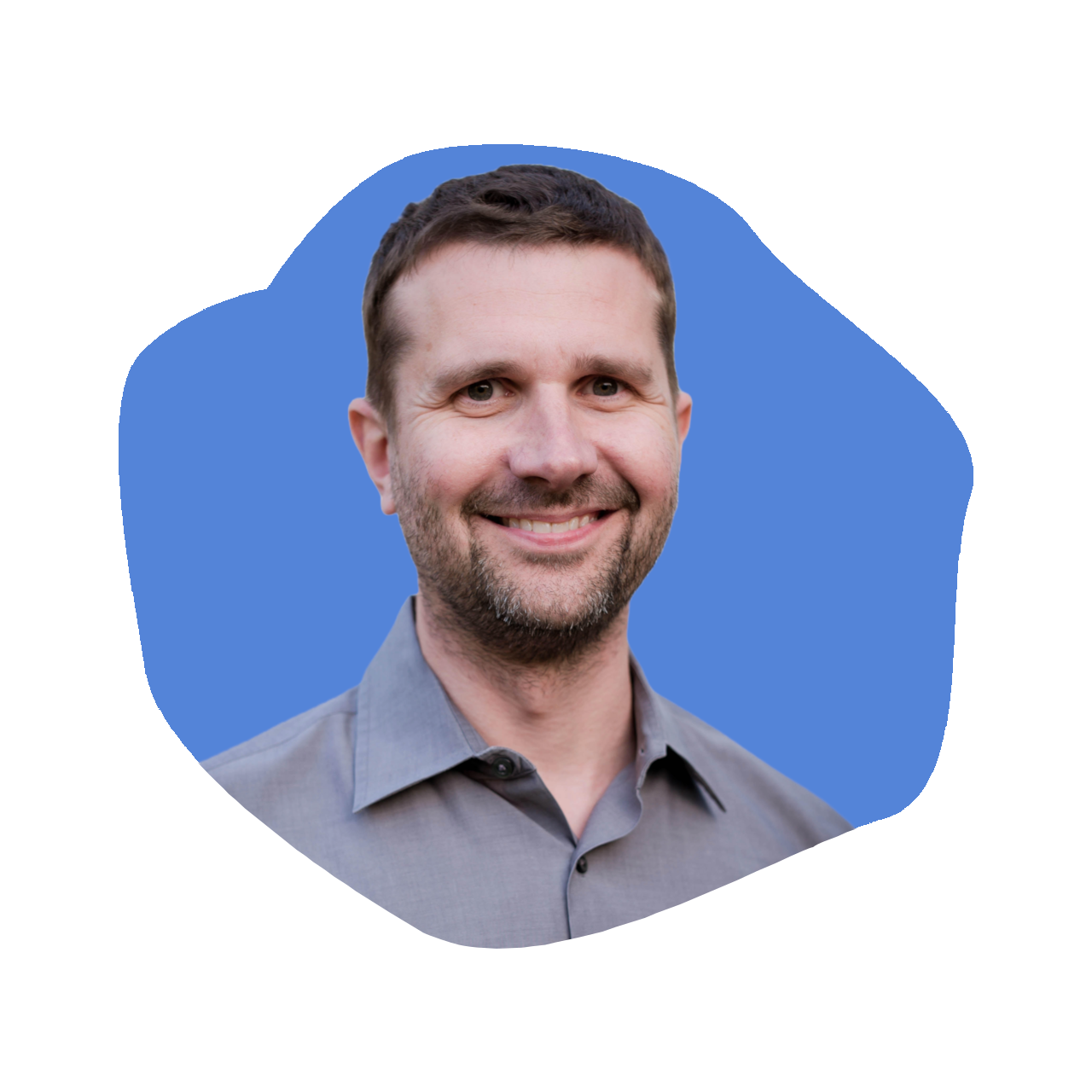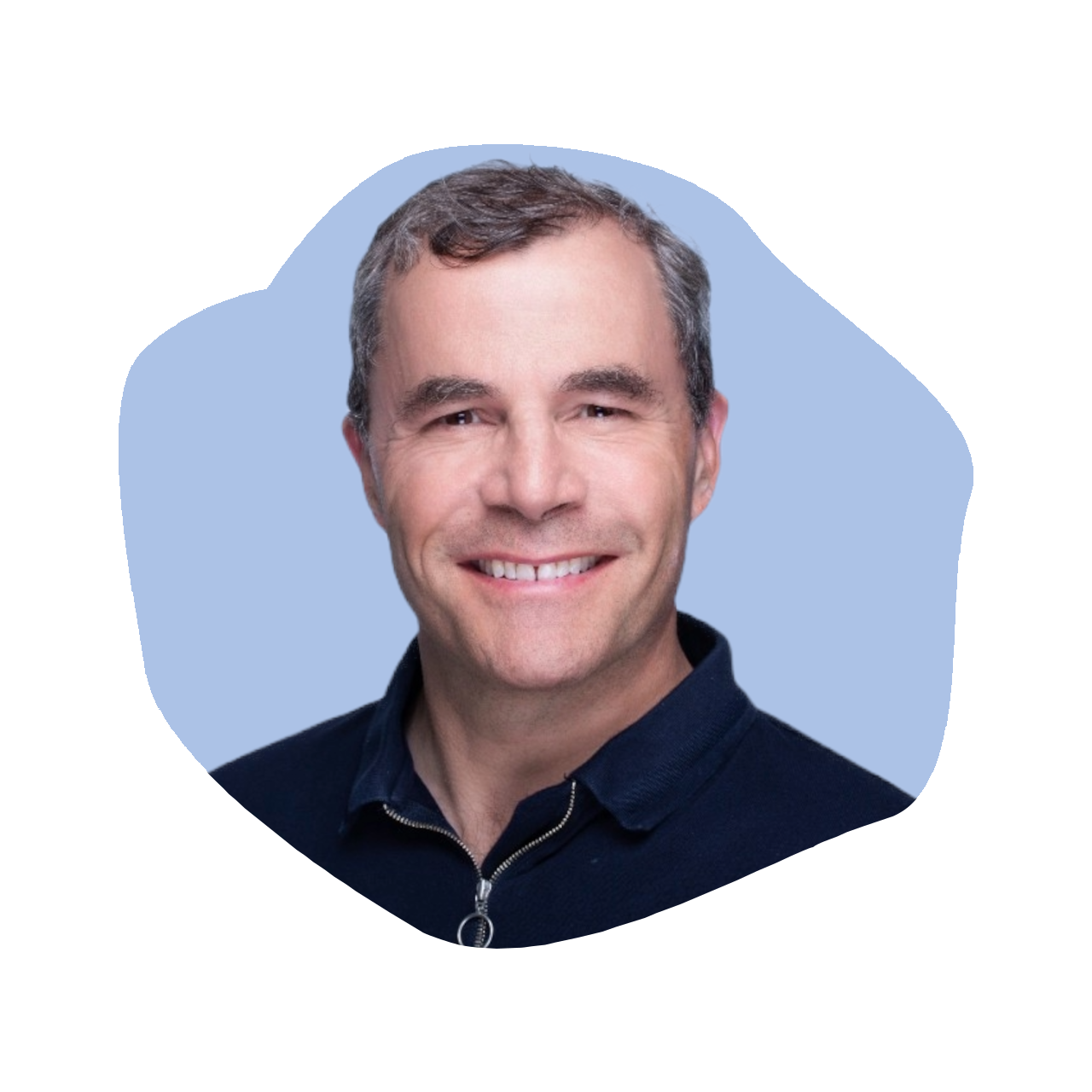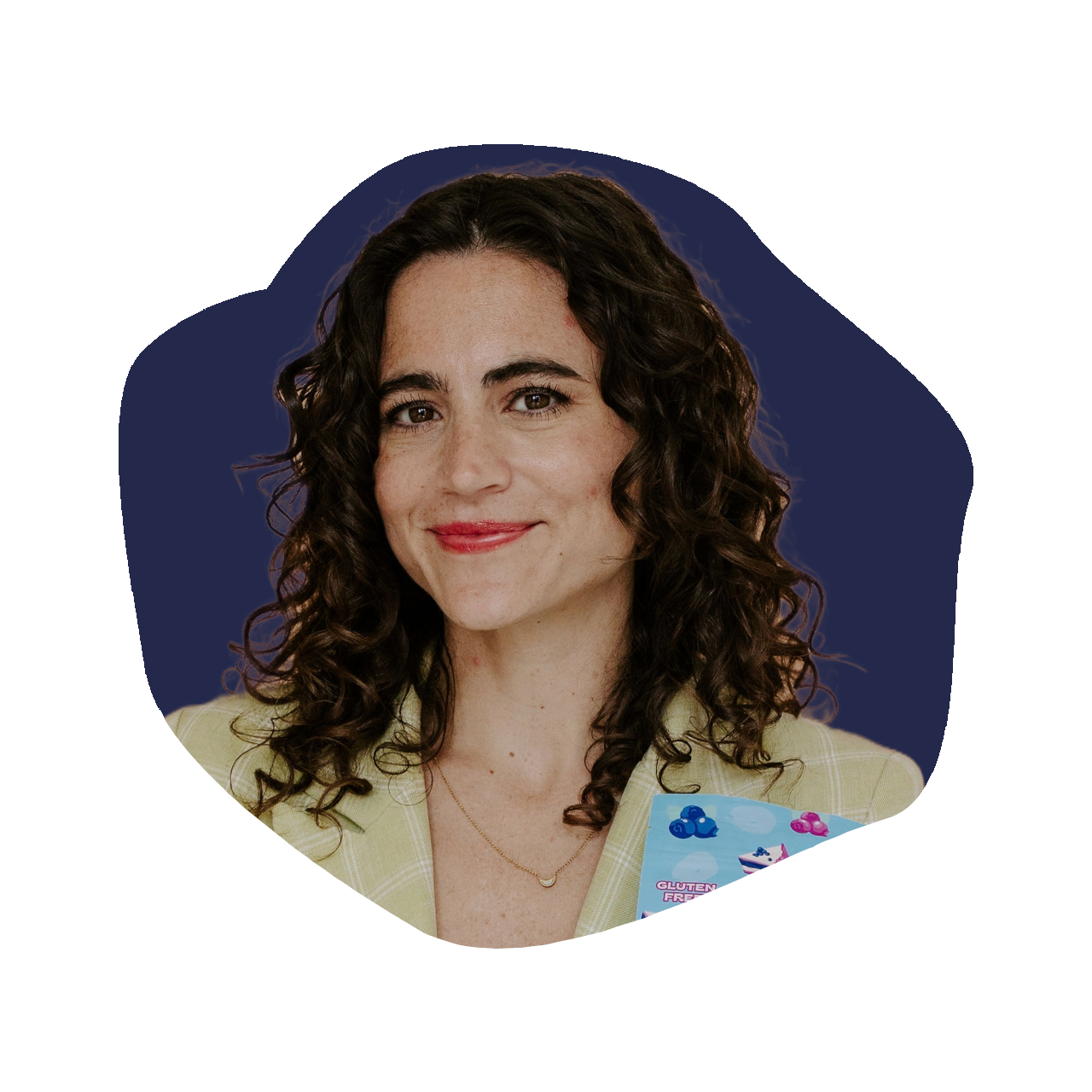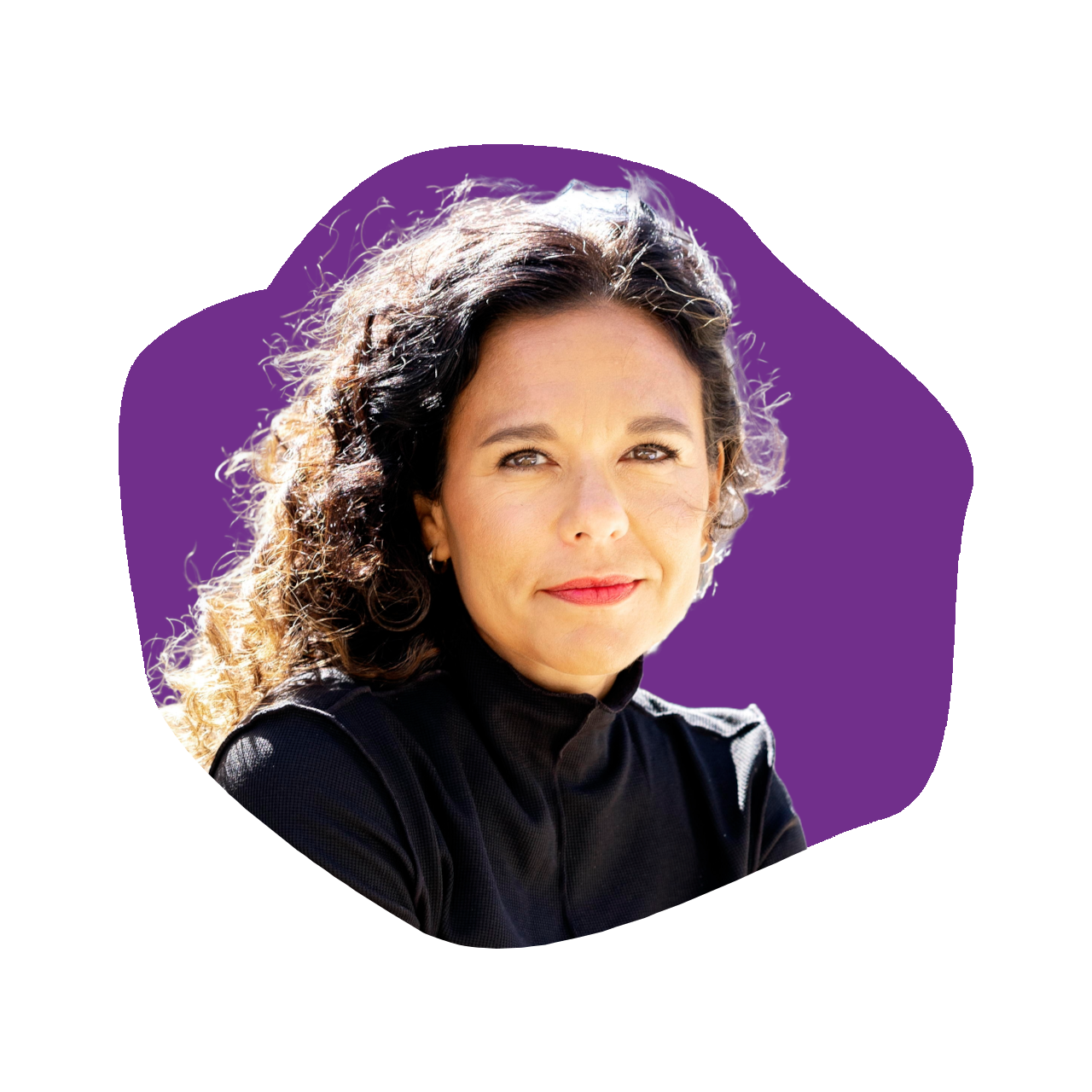Austin Hatch – Founder of Overcome It, LLC and Motivational Speaker
Episode 181

Today on the show, we have the inspiring Austin Hatch, Founder of Overcome It. Austin has transformed what he has learned from his own huge challenges into an actionable framework that anyone can benefit from. Austin did not let experiencing two plane crashes, a level seven traumatic brain injury or a coma stop him from moving forward. And he shares how having the right mindset can help you accomplish what you want as well. I can’t wait for you to listen to this episode on #TheKaraGoldinShow
Resources from
this episode:
Enjoying this episode of #TheKaraGoldinShow? Let Kara know by clicking on the links below and sending her a quick shout-out on social!
Follow Kara on LinkedIn – Instagram – X – Facebook – TikTok – YouTube – Threads
Have a question for Kara about one of our episodes? Reach out to Kara directly at [email protected]
More links from Austin Hatch
Transcript
Kara Goldin 0:00
I am unwilling to give up that I will start over from scratch as many times as it takes to get where I want to be, I want to just sort of make sure you will get knocked down. But just make sure you don’t get knocked out knocked out. So your only choice should be go focus on what you can control control control. Hi, everyone, and welcome to the Kara golden show. So join me each week for inspiring conversations with some of the world’s greatest leaders. We’ll talk with founders, entrepreneurs, CEOs, and really some of the most interesting people of our time. Can’t wait to get started. Let’s go. Let’s go.
Hi, everyone, its Kara golden from the Kara golden Show. I’m so excited to have my next guest here we have Austin hatch, who is the founder of overcome it. He is an amazing, amazing human and also is an incredible motivational speaker too, if you are looking for somebody to come in and talk a little bit about resilience and determination and getting over some incredible hurdles. Austin is your person. He’s overcome so many hurdles. And this is a guy that has grit and resilience. And we actually met through a mutual friend, Scott McGregor, who in a really inner call attention to Austin and his journey and and I’m really, really thrilled to have him here. So welcome, Austin.
Austin Hatch 1:37
Thank you so much, Kara, I really appreciate having me on. It’s really an honor and a privilege to be with you today. So thank you.
Kara Goldin 1:43
Absolutely. So let’s start with your story. So you grew up in in the Midwest, and you and I were talking a little bit before about how you, you know, had an incredible time growing up with your siblings, and you played some basketball hoops till late at night. Tell me a little bit about where did you kind of learned that resilience, I was an athlete growing up as well. And I always say that, you know, naturally sort of setting goals for yourself, to keep getting better keep getting better always knowing that, you know, you want to play with the people that are a little bit better than you all the time that those kind of things help you to build teams help you to build resilience, but I’m curious, what is your thoughts on that?
Austin Hatch 2:31
Yeah, I think I think just learning to compete every day is really important and obviously in sport it’s important to learn to compete obviously you’re competing against the other team and yourself in a way to be the best that you can be but also I think Yeah, just taking every day as as an opportunity to get better and you’re never as good as you think you are there’s always somebody out there who’s working harder than you so that kind of pushes you as an athlete when you’re young to you know work hard to be the best that you can be and yeah I’m so so grateful to have the upbringing and childhood that I did and yeah just love love playing sports and yeah definitely that that competitive mindset you know for that I learned from Sports apply definitely transmitted over to other areas of life as well.
Kara Goldin 3:17
I love it that’s that’s amazing. So talk to me a little bit about the timeline so that you you had not one plane crash but two plane crashes I mean, that’s amazing and scary at the same time. So talk to me about the first one when when did this happen?
Austin Hatch 3:36
Yeah, so tragically um, you know, I had an amazing family as I was telling telling you before how you know, my mom Julia was an incredible homemaker, Vermont, you know, our family and my my sister Lindsay was a great ballerina and such a bright future to look forward to and did great in school and had so much so much opportunity ahead of her and little by the end was only was young he was only five at the time of the first plane accident tragically, but yeah, that accident claimed the lives of my mom Julie, who was 38 at the time, my dad’s high school sweetheart, they’re they’re married 18 years at that point. I said my sister Lindsay was 11 as I said, and little brother Ian was only five and yeah, incomprehensible loss. But yeah, my dad and I found a way to keep moving forward. And the obviously for my dad was different. You know, losing a wife and children. I can’t imagine what it was like to lose a wife and children. I’m married. I’ve been married three years on the only three years but hopefully three years on the way to about 63. But yeah, you know, I just don’t he kind of showed me the way show me how it’s done. And lead by example. So
Kara Goldin 4:42
and So you were How old?
Austin Hatch 4:45
I was eight years old about to turn nine.
Kara Goldin 4:48
I mean, in incredible and what so at that time, so you’re raised by your father, at this point, and what what do you think were the key Things that, obviously, you’re a young kid, what did you think about the future? I mean, what how did you think about and obviously your dad had a huge impact on it. But when you think about resilience and grit, I mean, so many people I think would just give up at this point. I mean, how did you continue to move forward?
Austin Hatch 5:22
Yeah, well, my dad led me by example. And I think leading by example, is the most powerful one of the most powerful ways to lead obviously, we got to show up, or, you know, for those of us in leadership positions, like yourself, maybe this is not fitting for me to say, but I feel like you know, there are times when you got to, you know, ask people to do things ask people to fulfill their responsibilities, but also what I’ve learned from my dad and coach Beeline, Michigan and the example that they set for me is so important. And you know, when I was as young boy, you know, my dad, just this the way he the way he lived, was one of the greatest men to ever live as far as I’m concerned. And I just just he was just a good human being a good human being. And he The amazing thing about about my dad, maybe we’ll talk about this more in a few minutes, but um, he left every person and every place he went a little bit of any found it. And I’m like that, if we can all do that, right. Maybe it’s not my summer doing anything big. Just going a little out of our way to make somebody else’s life a little bit better. I feel like that’s gonna that’s a recipe for to have a good life a happy life and, and add a lot of value, however you choose to define that. So that’s, that’s incredible. So
Kara Goldin 6:37
the second plane crash you were How old? I was. 16
Austin Hatch 6:41
some of the first one happened when I was eight. My dad was remarried. A couple years later, we had a great blended family that restores the normalcy of my life. And I got to be pretty good at basketball is working really hard on my skills and like my dream was to always play for Michigan, and my mom went to school and it’s been in my family for years. I grew up going to football games at the big house and then Arbor when I was really young. And, but then I you know, obviously lost my mom was terrible, but still had this love for Michigan. And my dream came true on June 15 2011. And Coach Beeline called me and offered me a scholarship to play for Michigan, which I accepted on the spot. I just finished my sophomore year of high school and yeah, it was a dream come true. A dream come true.
Kara Goldin 7:26
It’s It’s incredible. So the the second plane crash at age 16. You were it at that point? I mean, did you how did you think about life overall? I mean, after that moment, I read that you were you’re in a coma for two months without the first or the second plane crash.
Austin Hatch 7:49
That was the second one. So the first one I wasn’t injured too bad. Just got had some really bad burns on my arms and hands. But then the second one I was almost killed. I was in a coma for two months with a traumatic head injury punctured lungs. Five broken ribs fractured clavicles broken pelvis added like a long list of injuries, right. hematoma and my leg and my Yeah, so I was in rough shape. By the grace of God, you know, I went into a coma because it was good for our body to heal. That was the best thing for me at that point. But then, you know, I had a sort of crazy thing. So my train of brain injury was the worst level seven traumatic brain injury. One of the worst ones, the doctors at the hospital in Traverse City, Michigan, one of the worst head injuries that ever seen, they came out of a coma. So I’m blessed to be here. And know so much about traumatic brain injury injuries are measured on a scale of one to seven, seven being the worst. Obviously, average amount of brain injury is severe. But levels One, two and three have a pretty good chance of you know, returning to normal life, regaining independence, things like that. And what was four or five, six and seven of decreasing smaller chances. And set level sevens being the most severe. You know, it’s the no one knows what the future is gonna hold necessarily. Oh, it doesn’t always look good. But my levels mine was the worst level seven and ever seen. They came out of a coma. I’m just so I’m so blessed to be here. And it’s how can you not be grateful? When I experienced something like that, and I’m so blessed right now to have the life that I do get married who girl my dreams and get to make a living by serving other people. I mean, I’m just sort of so blessed. It’s hard, hard to imagine how life could be any better.
Kara Goldin 9:30
So according to MIT institution, Arnold Barnett, the odds of surviving a plane crash with one fatality is one in 3.4 million surviving two is one and 11 quadrillion. And I mean, it’s just it’s amazing what you what you’ve been through. So again, I think oftentimes when bad things happen in our life, certainly, this is, you know, Bad times 10 I think in many people’s minds, people just stop, they get depressed, they don’t know what to how to move on. And I think that you are a living example of somebody who’s just decided, you have to move on. You talk a lot about understanding the deeper reasons that drive our actions. And how do you train people to discover those underlying motivations?
Austin Hatch 10:25
Yeah, I think being driven by a greater purpose is so important. But but we need to work for something bigger than ourselves. Because I feel like if we’re working on this for ourselves, it’s pretty likely that life’s going to present us with adversity, opposition, challenge, trial, tribulation, what have you, that’ll probably cause us to give up or give in, because we don’t have a driving force for why we do what we do. It’s different for everybody, whether it’s your faith, your family, your friends, your teammates, the organization, you’re a part of, hopefully, all of us are someone internally driven to be the best that we can be. But I think having a greater purpose is very important. You know, for me, when I was on those tough days in the hospital, I was I was I was coming out of the coma. And had I had a long road to recovery ahead of me. I thought that how I responded to that adversity was a direct reflection of my family and having and how could I not give everything I had to the process, you know, if I was remember that every day, and I also felt that I owed it to the people, to my friends and family who were put their life on hold to be there in the hospital to support me, out of the goodness of their heart, it did no good for them. Maybe it was cool for them to be a part of a cool story and support me, they maybe made them feel good. But they did it for me. And so I felt that the least that I can do is give my best give my all to make the greatest recovery possible. That was my, my goal wasn’t just to make a recovering. Yeah, I hope things work out. And I was my goal was the competitor in me from sports, right? I wanted I wanted to make the greatest recovery from a level seven traumatic brain injury that’s ever been made by anyone ever. And I don’t know, I just think every every day, every day, go big or go home. Like my dad always said, so.
Kara Goldin 12:01
Yeah, no, I absolutely love that. And I think people can learn so much from other people’s examples. And, frankly, other people’s tragedies along the way when someone has fallen down or hits a difficult challenge. What do you say to those people? Besides get back up? I mean, how do they get back up?
Austin Hatch 12:23
I think it starts with setting little goals. Right? So I coach beeline for Michigan came to see me. When I was in the hospital at Ric in Chicago. It’s actually it was renamed to the surely Ryan, you know, health care or medical recovery rehab center, surely Ryan something. And I was I was in a wheelchair, I couldn’t walk at this point. And Coach came to see me and said I can’t wait to have you on my team someday awesome. Whenever ever to get to Michigan, I can’t wait to coach you. So I obviously I had a long way to go. I couldn’t walk at this point. And he told me he can’t wait to have me on his team at Michigan, one of the greatest universities in the world, right. But if I can’t walk right now, I got to learn to walk first. And then eventually learn to jog and eventually learn how to run and eventually learn how to play basketball a little bit. So I got if I want to get to Michigan, that’s the that’s the ultimate goal. check off little boxes on the way learn how to walk first. And for me literally or for what other people you’re all for everybody listening to this is dealing with some challenge carry, you’re facing a challenge. Everybody’s dealing with something. And I think we can all just metaphorically speaking, learn to walk again, just just take a little step forward. And then another little step, another little step, another little step and over time, I think we’ll be good to go pretty good spot.
Kara Goldin 13:43
I feel like so often people forget to celebrate their wins, right. And I think I gained the most strength from actually looking back on those times where I didn’t think I was going to be able to do something, right. Whether it’s whether it’s, you know, get my first job or, or, you know, tackle a big challenge around fundraising or whatever it is, that seemed really scary to me at the time, that when I look back, I gain a lot of strength by just knowing I actually got through it so often, it might not have actually gone exactly the way that I had hoped, or that I had kind of SPECT out. In my mind. My goal was out there, but I was also pivoting along the way, right? Maybe things took longer for you to do it. But do you often find yourself looking back on that? That those times when things were challenging for strength?
Austin Hatch 14:43
Yeah, you know, I think you mentioned pivoting. I think it’s I think learning how to win in a different way is never a bad thing. Learning how to win in a different way is never a bad thing. You know, like I have this so when I committed to Michigan on June 15 accomplish my lifelong dream. I thought I was gonna play my junior and senior year of high school, have a good high school career and then go to Michigan and be a good player there and help the team win. But I was faced with an obstacle. And that made me pivot a little bit, right. And obviously, I’m not grateful for the opposite or grateful for any any of that. But wait, so if winning, metaphorically speaking, would have been going to Michigan, having a good career, and helping the team win on the court. That wasn’t possible for me after the action, though. But winning what was winning to me, was being a great teammate, in filling my role in the team to help the team win. And so I was, I just made a decision, you know, I’m just gonna find a way to get to Michigan, I don’t know how I’m going to do it right now. Right. At the time I was, I was starting my junior year of high school, I missed a year of school because the x i was recovering. So it took a year longer to get to Michigan. But I kind of just said, you know, I’m gonna, I’m gonna find a way, I don’t know exactly how, but I’m gonna find a way I think that’s important, like to a lot in business in anything, we have these lofty goals, or whatever they may be, maybe you want to double the size of the business in five years, or whatever you want to overcome this obstacle. You may not, we don’t always have to have a detailed game plan of exactly what we’re going to do to accomplish that goal. I think, a lot of the time, I think we just got to find a way.
Kara Goldin 16:22
So I absolutely agree. And you have so many incredible tools that you talk about, of just not only finding the grip, but also, you know, finding the the the purpose, right, that you’re that you’re really setting out to do. What How were you able to kind of define your own purpose? And how do you suggest for others that they find their purpose? If they’re sitting here thinking, what what is my purpose? I mean, I’ve never been in a plane crash or two plane crashes? I mean, what what is my purpose I make a decent living? Or maybe I’ve had too many failures? And what how, how do you move forward to find that? What’s the first step?
Austin Hatch 17:08
Yeah, I think, you know, every everybody’s purpose is different. And whether it’s your faith, your family, your friends, your organization, your teammates, whatever it is, everybody’s got a different, greater purpose. And I think it’s just, I think we have to have an honest, you know, self assessment, self reflection, and to figure out what that is, because I because nobody, I can’t tell you what yours is, you can’t tell me what mine is, or anybody else. Right. But I think it’s just if you if you think about it, you know, maybe it’s you Yeah, if it’s your faith, your family, you know, for me, on my road to recovery, it was honoring my family and heaven, as I mentioned before, and and also honoring, or showing my appreciation for the people that were there to support me because I could tag and say thank you to those people. But if I wasn’t working hard to recover, that’s, that doesn’t really mean much. So I think I think saying thank you. And showing your gratitude are both important. And you don’t want to show your gratitude, and never say thank you. But you also don’t want to say thank you. And then yeah, yeah, act like you’re really care, you know what I mean? So, I think just figuring out and finding that purpose is and you just got to kind of, you know, tap into that, you know, it’s your faith, your family, you know, the organization, whatever it is, I can’t speak for everybody who’s listening to this. And I can’t speak for you, but your agree your purpose is something bigger than yourself. That’s, you know, whatever that is, whatever you decide that is, I think it’s just just important to recognize that what’s something that you’re willing to sacrifice for? I think, I think answering that question, what’s something you’re willing to sacrifice for? If it’s your spouse, if it’s your family, if it’s your, your, you know, your faith and you want to live your life in accordance with Scripture, or whatever it is, it doesn’t matter. I think your greater progress is something you’re willing to sacrifice for.
Kara Goldin 18:59
I love that. No, it’s great. So the grip framework that you’ve developed I love it. It’s simple. But I think it’s the simplest things are usually the most successful I think in in anything that we do in life. It’s it standing for growth, mindset, resilient, integrity, and team first mentality. So I I love that and I really, really think that it’s something that everyone should look at. It also teaches us how to approach any circumstances that are out there when you think about you know, trying to figure out resilience and and resolve along the way so what’s your hope for people like when people are coming to listen to you and they hear some of this obviously people will recognize you know, what you’ve been through just getting through these, these tragic times and and, you know, losing family members, Bill Hang on, you know, getting through really, really crazy situations, including two plane accidents. I mean, there’s not very many of you out there that are able to sort of have that in your history. But what do you think is the key thing that people can learn along the way and that you’re hopeful for?
Austin Hatch 20:19
Yeah, well, so I so I talked about that grid acronym. But I talked about the growth mindset. First and foremost, the growth mindset, these adversities opportunity. The growth mindset believes we can grow from anything we experienced in life, I firmly believe that the odds are is the decision to be resilient. If you make the decision to be resilient, we focus on the things that we control things like our attitude, our work ethic, our response to adversity, the eyes integrity, and of course, you know, integrity is about being honest, and doing the right thing, and no one is looking. But I think especially in the context of overcoming any obstacle, or really achieving any goal, especially as a team integrity is about following through on our commitments and doing what we said we were going to do, especially when there’s a change in circumstance, think about what Coach Beeline did for me. Right? He felt fine. He followed through on his commitment to me, despite the fact that our circumstances drastically changed after the second plane crash, and I couldn’t play he did coach behind did a common thing in an uncommon way. He did a common thing and an uncommon way, if we do that common thing and uncommon way consistently. I believe we’re gonna leave people in places a little button, we found the last letters t t, Visa, team, person talde. Things you always think about the team first, every person on every team, every person in every organization on the planet has a role. And that role is very important. Otherwise, that person wouldn’t be on the team. I’m sure you can. I mean, you’ll have you have people on your team. Every person matters. Every role matters. And so I felt that, you know, for me, I couldn’t I couldn’t play at Michigan, I spread 1.4 years, I actually care. I don’t know, if you assume you were going to be having the conversation with the Michigan record holder. I was in there. I’m in the record books I mentioned. Believe it or not. I’m the all time lowest scoring full scholarship athlete in program history.
Kara Goldin 22:00
I love it.
Austin Hatch 22:01
But what I could do to serve my teammates, right, it was it was shag balls and practice elbow bugs on road trips, rebound and shoot on before games. I that was my role. That was my role. So I think those grid that that grit, that growth, mindset, the resilience, the integrity, the team first mentality, I can’t say if we have those things we’re going to, it’s going to guarantee that we win. But those things are all 100% in our control, we can’t make every shot metaphorically speaking, the mark is going to do with the mark is going to do COVID is going to do what it’s going to do. like things are going to be challenging. But if we can control our attitude, our work ethic, our mindset, our follow through, and our mentality if we go beyond our control, what kind of teammates we are, it takes no talent to be a great teammate. No title to be, you know, so Yeah, I do. It’s a blessing to be able to share some perspective about the things that I’ve learned along my journey both from the road to recovery from the injuries, that suffering the second tragic plane accident, also from the my time in Michigan being being a teammate there being a part of the Michigan organization. So yeah, it’s a blessing to be able to serve and add value to right to a variety of organizations.
Kara Goldin 23:04
Well, I think something else that you touched on, which I think is really really important is is the mindset of Chin up and and figure out how to move forward and also look at life as your journey not so seriously because certainly you’ve added humor to you know your life to the ability to laugh at yourself at to some extent right as you you know, just because you’re not number one and and something it doesn’t mean that you can’t be number one in something else. And I think that that is that is is something that look people want to be around that too. People always say like oh, I want to be with the best Well, I think your ability to to laugh at yourself and and not take yourself so seriously to but also have that grit and determination is is quite enjoyable. So you certainly Austin your message is nothing short of inspirational and your advice and the whole grid system is so actionable. I really really loved seeing it Where can more people find out about you and also just about your system.
Austin Hatch 24:19
Yeah, so more information is on my website, www dot Austin dash hatch comm Austin dash hatch Comm. There’s more information there. And I’m also on LinkedIn of course you know, you can love to connect with any anyone who listens to this, we’d love to we’d love to connect would be honored and grateful for an opportunity to serve any of your teams whenever it would add the most value. So yeah, I’ve just you know, it’s really fun to be building this business to impact and inspire as many people as we possibly can one person at a time, one person at a time. And Carrie you were mentioning just that dinner where you were saying there about you know, responding by adding a little bit of humor and not taking yourself too seriously. Right and just enjoy Life and I think that overcoming adversity, it’s hard. Right? But I i in for anybody listening to this today, what’s you’re going through is difficult. It’s challenging. And for me, this is just one thing that I did on my journey I buy whatever you believe doesn’t matter. I prayed maybe your spirits or maybe you’re not I I prayed that I would be able to choose the harder right instead of the easier wrong. As it says in the cadet prayer at West Point. It says, Lord help us to never be content with a half truth, the whole truth can be one, and make us choose the harder right instead of easier wrong. It’s harder to overcome obstacles, it’s hard to be resilient, it’s easier to allow ourselves to be the product of our circumstances, it’s easier to allow our, our businesses to be to be a product of the market. Obviously the market is going to impact every business but like the current the current state of things in our country, whatever it is, COVID or anything else. I prayed to God that I would be able to choose that harder, right? Instead of BS, you’re wrong, choose the harder right to get it that would help me get to Michigan, right? Because it’s I don’t want to say it’s easy to allow yourself to be the product of our circumstances, but it’s easier. It’s hard to overcome. So I just I encourage everyone listening to choose that harder right over the easier wrong. And yeah, just just find a way, find a way
Kara Goldin 26:21
and using your inner drive to just get through things I think is is really more than anything that that the huge key message that you bring. Well, thank you so much, Austin, I loved every minute of this and thanks for sharing where people can find you. And definitely thank you everyone for listening in. today. We’re here every Monday and Wednesday with incredible leaders, founders, CEOs, incredible stories that really hopefully inspire and help you to figure out how to build grit and resilience and know how to do things and really, more than anything if you get a chance please rate the podcast definitely the overall podcast five stars and Austin five stars you were incredible. Your story’s incredible. And definitely hope that you all get a chance to follow me on social I Kara golden with an eye. I’m on all platforms. And thank you everyone have a great rest of the week. Thanks, Austin that you can appreciate it. before we sign off, I want to talk to you about fear. People like to talk about fearless leaders. But achieving big goals isn’t about fearlessness. successful leaders recognize their fears and decide to deal with them head on in order to move forward. This is where my new book undaunted comes in. This book is designed for anyone who wants to succeed in the face of fear, overcome doubts and live a little undaunted. Order your copy today at undaunted, the book calm and learn how to look your doubts and doubters in the eye and achieve your dreams. For a limited time. You’ll also receive a free case of hint water. Do you have a question for me or want to nominate an innovator to spotlight send me a tweet at Kara golden and let me know. And if you liked what you heard, please leave me a review on Apple podcasts. You can also follow along with me on Facebook, Instagram, Twitter and LinkedIn at Kara golden golden thanks for listening









